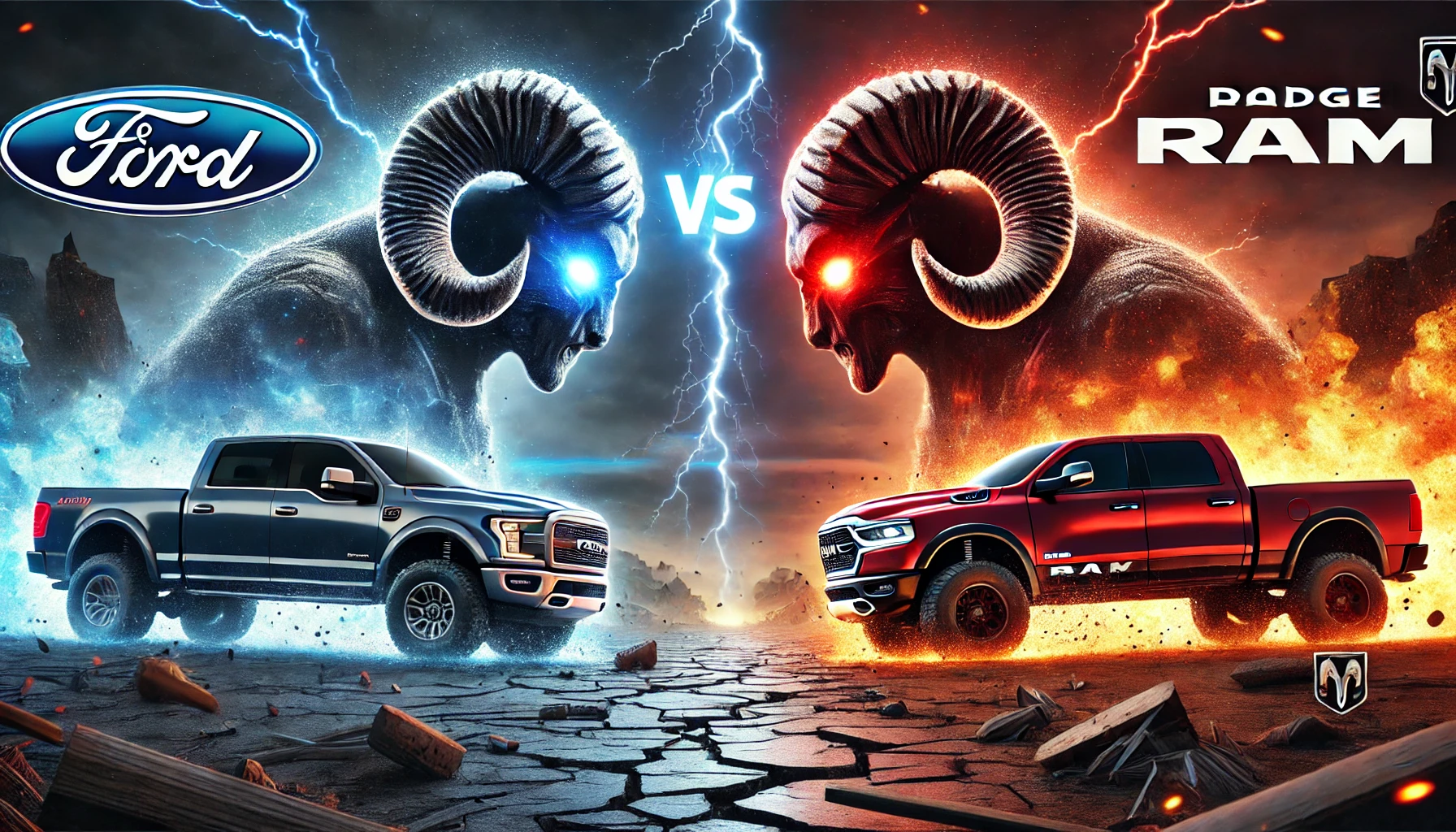Benefits of Using a 1-Ton Ford F-350 Super Duty for Towing RVs Instead of a 3/4-Ton Truck
When choosing a truck for towing an RV, the 1-ton Ford F-350 Super Duty has several advantages over a ¾-ton truck (like the F-250).
1. Greater Towing and Payload Capacity
A 1-ton truck has a higher Gross Vehicle Weight Rating (GVWR) and Gross Combined Weight Rating (GCWR) than a ¾-ton truck, making it safer and more capable when towing large RVs.
| Truck Model |
Max Towing Capacity (lbs) |
Max Payload Capacity (lbs) |
GVWR (lbs) |
| 2024 Ford F-250 (¾-ton) |
23,000 |
4,268 |
10,000 – 10,800 |
| 2024 Ford F-350 (1-ton SRW) |
28,000 |
8,000 |
10,900 – 14,000 |
| 2024 Ford F-350 (1-ton DRW) |
32,900 |
8,000 |
14,000 |
- A 1-ton truck can handle larger fifth-wheel RVs without exceeding weight limits.
- Stronger axles and frame mean less stress on components.
2. Stability and Control
- Single Rear Wheel (SRW) option: The F-350 SRW provides greater maneuverability for towing fifth-wheel RVs into tighter locations.
- Dual Rear Wheel (DRW) option: The F-350 dually provides greater stability for towing heavy fifth-wheel RVs.
- Heavy-duty suspension: Less body roll and sway when hauling.
- Better braking system: Improved stopping power, especially when descending grades.
3. Longer Durability and Less Wear
- A ¾-ton truck can tow large RVs but operates closer to its limits, leading to more wear on the drivetrain and suspension.
- A 1-ton truck’s reinforced frame and suspension result in longer service life.
4. Higher Resale Value
- 1-ton diesel trucks hold their value better, especially among RV owners.
Comparison: Ford F-350 Super Duty vs. Ram 3500 vs. GMC Sierra 3500HD
1. Towing and Performance Comparison
| Truck Model |
Max Towing Capacity (lbs) |
Max Payload Capacity (lbs) |
Torque (lb-ft) |
| Ford F-350 (6.7L Power Stroke Diesel) |
32,900 |
8,000 |
1,200 |
| Ram 3500 (6.7L Cummins HO Diesel) |
37,100 |
7,680 |
1,075 |
| GMC Sierra 3500HD (6.6L Duramax Diesel) |
36,000 |
7,290 |
975 |
Key Takeaways:
- Ford leads in torque (1,200 lb-ft), which improves towing performance.
- Ram 3500 has the highest towing capacity but uses a less advanced 6-speed Aisin transmission.
- GMC 3500HD has smooth power delivery but slightly lower ratings.
2. Engine and Transmission Performance
- Ford 6.7L Power Stroke Diesel
- Best-in-class torque (1,200 lb-ft) for effortless towing.
- 10-speed TorqShift automatic transmission delivers smoother shifts and better fuel economy.
- Strong exhaust brake helps control speed downhill.
- Ram 6.7L Cummins HO Diesel
- Reliable and well-known but has slightly lower torque (1,075 lb-ft).
- Uses a 6-speed Aisin transmission, which is less advanced than Ford’s 10-speed.
- Also utilizes an exhaust brake to help control speed downhill.
- GMC 6.6L Duramax Diesel
- Smooth Allison 10-speed transmission but slightly lower torque (975 lb-ft).
- Good balance of power and comfort.
3. Ride Comfort & Interior Features
| Feature |
Ford F-350 |
Ram 3500 |
GMC 3500HD |
| Technology |
Best towing features (Pro Trailer Backup Assist, Onboard Scales) |
User-friendly but fewer towing features |
Advanced camera system |
| Ride Comfort |
Heavy-duty feel, stable under load |
Smoother with air suspension |
Smoothest ride (independent front suspension) |
| Interior Quality |
Modern and tech-heavy |
Luxury-focused (Limited trim) |
User-friendly and spacious |
- Ford F-350 has the best towing tech and highest torque.
- Ram 3500 has the most luxurious interior.
- GMC 3500HD offers the smoothest ride.
Benefits of Using a Diesel Engine Instead of Gas for Towing an RV
1. Higher Torque for Better Towing
- Diesel engines produce more torque than gas engines, making it easier to tow heavy RVs.
- Example: The 6.7L Power Stroke diesel generates 1,200 lb-ft of torque, while the 7.3L Godzilla gas engine in the F-350 only produces 485 lb-ft.
2. Better Fuel Efficiency
- Diesel engines have higher fuel economy, especially when towing.
- A diesel truck towing an RV gets 10-12 MPG, whereas a gas truck may drop to 6-8 MPG.
3. Longer Engine Life and Durability
- Diesel engines are built for heavy-duty work, with stronger components like forged crankshafts and high-compression blocks.
- Many diesel engines last 500,000+ miles with proper maintenance.
4. Superior Engine Braking (Exhaust Brake)
- Diesel trucks have exhaust brakes, which slow the truck when descending steep grades, reducing brake wear.
5. Higher Resale Value
- Diesel trucks hold their value better due to high demand among RV owners.
6. Better Performance at Higher Elevations
- Diesel engines use turbocharging, meaning they lose less power at high elevations compared to gas engines.
Conclusion: Which Truck Is Best for Towing an RV?
| Best for… |
Winner |
| Best Towing Capacity |
Ram 3500 (37,100 lbs) |
| Best Torque and Towing Tech |
Ford F-350 (1,200 lb-ft, Pro Trailer Assist) |
| Smoothest Ride |
GMC Sierra 3500HD |
| Most Luxurious Interior |
Ram 3500 |
- If you want the best overall towing power and technology, go with the Ford F-350 Super Duty.
- If you want the highest towing capacity and luxury, the Ram 3500 is a solid choice.
- If you prefer smoothest ride comfort, the GMC Sierra 3500HD is a great option.
For serious RV towing, a 1-ton diesel truck is the best choice over a ¾-ton truck due to its higher towing capacity, stability, durability, and efficiency.



Comments are closed